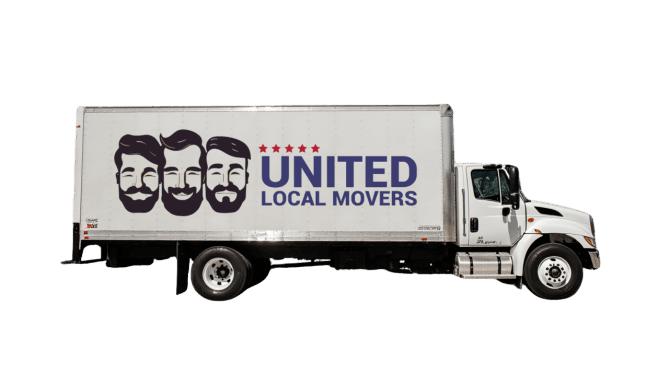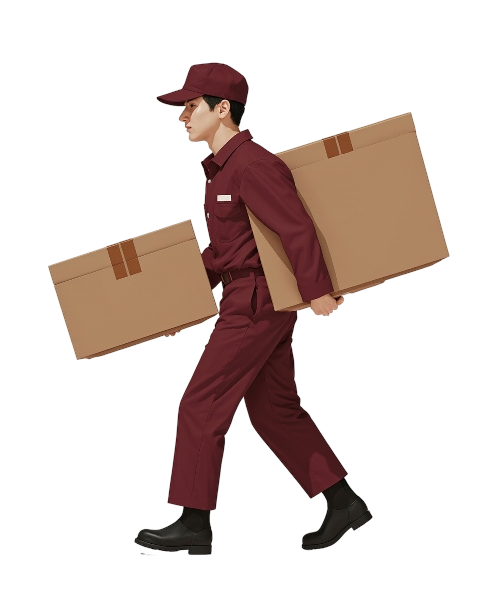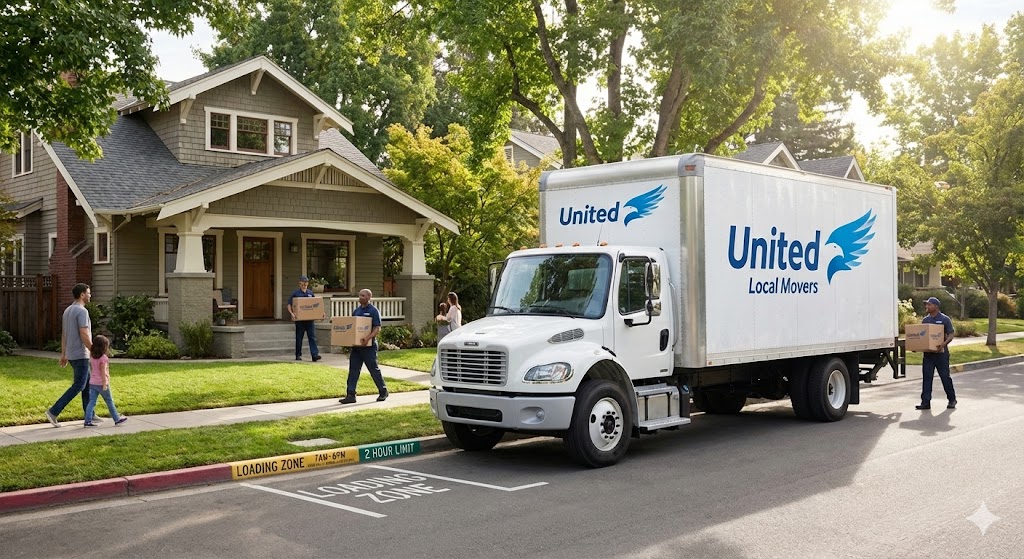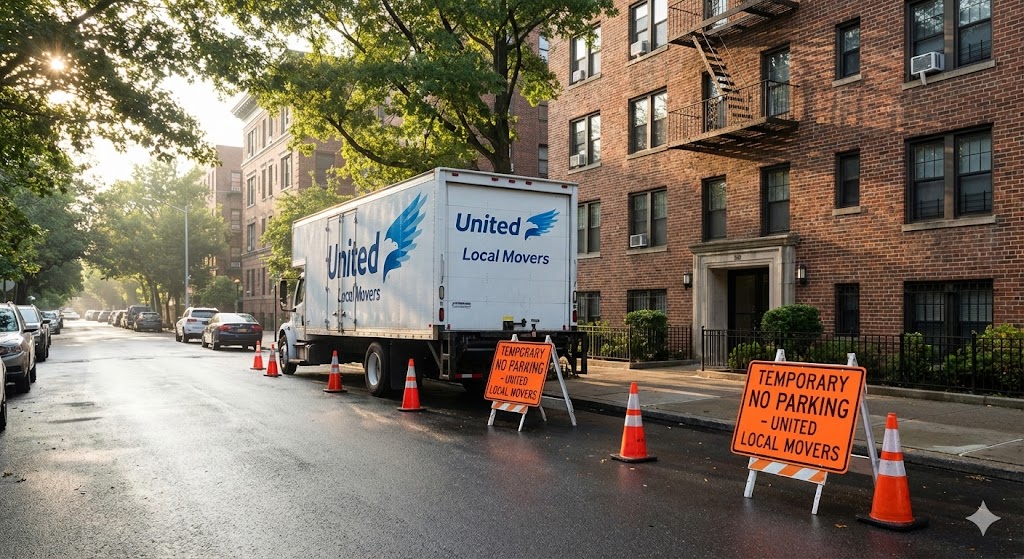When planning a long-distance DIY move, most people think about gas, tolls, and routes — but few consider weigh stations. If you’re driving a rental truck across state lines, you may wonder: “Do I need to stop at weigh stations?” The answer depends on the size of the truck, the state you’re driving through, and whether the vehicle is classified as commercial. Understanding these rules before your trip can help you avoid fines, delays, or unnecessary stress on moving day.
What Weigh Stations Are and Why They Exist
Weigh stations are roadside checkpoints used to monitor commercial vehicle weight and compliance with state and federal transportation regulations. Their main purposes include:
- ⚖️ Ensuring vehicles meet legal weight limits
- 🚛 Preventing excessive wear on highways
- 🧾 Verifying permits, registrations, and tax compliance
- 🛑 Enforcing safety regulations
These stations are commonly located at state borders or along major interstates. Whether you must stop depends on your truck’s weight class and the state’s specific rules.
Do Rental Trucks Need to Stop at Weigh Stations?
This is one of the most common questions for DIY movers. In most states, personal-use rental trucks under a certain weight are not required to stop. However, some states require all trucks above a certain GVWR (Gross Vehicle Weight Rating) to enter weigh stations, regardless of commercial status.
General guidelines:
- 🚐 Small trucks (10–15 ft): Usually exempt in all states.
- 🚚 Medium trucks (16–20 ft): May or may not need to stop depending on the state.
- 🚛 Large trucks (22–26 ft): Some states require them to stop, even for personal moves.
Always read roadside signs before passing a weigh station. States can post specific instructions for rental trucks and non-commercial drivers.
Understanding GVWR and Weight Classes
Your truck’s GVWR is the maximum allowable weight including the truck itself, fuel, and cargo. It’s usually printed on a label inside the driver’s side door frame. Common weight classes for rental trucks:
| Truck Size | Approx. GVWR | Likely Requirement |
|---|---|---|
| 10 ft | 8,000–10,000 lbs | No stop required |
| 15 ft | 10,000–14,000 lbs | Usually no stop required |
| 20 ft | 14,000–18,000 lbs | State-dependent |
| 26 ft | 20,000–26,000 lbs | Some states require stop |
If your truck exceeds 10,000 lbs GVWR, it’s smart to err on the side of caution and pull into weigh stations unless clearly exempted.
State-by-State Variations
Not all states treat rental trucks the same way. Some only require commercial trucks, while others expect all large vehicles over a weight threshold to stop. Examples:
- 🚨 California: All trucks must enter open weigh stations.
- 🛣️ Florida: Only commercial trucks typically required, but signage may instruct otherwise.
- 🌄 Colorado: Trucks over 26,000 lbs must stop, even if non-commercial.
- 🧭 Texas: Many stations only require commercial vehicles but post exceptions clearly.
Rules can change, and signs override general guidelines. Always follow posted instructions when approaching a weigh station.
What Happens at a Weigh Station
If your truck must stop, the process is usually quick and simple:
- 🛑 Follow signs into the weigh station.
- ⚖️ Drive onto the scale slowly.
- 📊 An officer or automated system records your weight.
- 📄 If required, present rental documentation if asked.
- ✅ If everything checks out, you’ll be cleared to continue.
In most cases, non-commercial rental trucks are waved through without inspection.
Required Documents for Weigh Station Stops
Even if you’re moving for personal reasons, it’s good to have documentation ready:
- 📃 Truck rental agreement
- 🪪 Driver’s license
- 🚚 Truck registration (usually in the cab)
- 🏡 Proof of personal move (optional but helpful)
Having these papers organized can speed up the process if an officer has questions.
Common Reasons for Delays at Weigh Stations
- 🚫 Exceeding legal weight limits
- 📄 Missing or incomplete paperwork
- 🪧 Ignoring signage requiring a stop
- 🔧 Safety concerns (such as unsecured loads)
Even if you’re not operating a commercial business, failing to stop when required can lead to fines or being pulled over shortly after the station.
Tips to Avoid Weigh Station Problems
- 🪧 Always read signs approaching weigh stations.
- 📏 Know your GVWR before the trip.
- 📦 Load the truck evenly and avoid exceeding capacity.
- 🧾 Keep paperwork accessible in the cab.
- 🕒 Don’t speed through the scale area — take it slow.
A few minutes of preparation can prevent hours of hassle on the road.
What If You Accidentally Bypass a Weigh Station?
If you miss a required stop:
- 🚨 You may be chased or flagged down by enforcement.
- 💰 Fines or citations can apply.
- 🔁 Safest option: exit and return to the station as soon as possible.
Weigh station bypass isn’t usually criminal for personal moves, but it can cause serious delays and fines. It’s always better to stop if in doubt.
Weigh Station Bypass Technology
Some commercial carriers use transponders (like PrePass) to bypass stations, but personal rental trucks usually can’t. If you’re renting from a large company, check if they provide any bypass options or guidance on their routes.
Why Proper Weight Matters
Even if you’re not legally required to stop, overloading your truck is a safety hazard. Exceeding GVWR can:
- 🛑 Increase stopping distance
- 🌀 Affect steering and handling
- 🚨 Make you liable in case of an accident
- 🧭 Cause mechanical breakdowns
Keeping your load under the limit improves safety, fuel efficiency, and compliance.
Working With a Professional Mover Instead
If the idea of navigating weigh stations, reading truck regulations, and managing compliance stresses you out, hiring a full-service mover might be a better option. Professional companies like United Local Movers handle all transportation logistics — including compliance — so you don’t have to worry about roadside stops or weight checks.
Confidently Crossing State Lines
For most personal movers, weigh stations are nothing to fear. A bit of preparation — knowing your truck’s weight, reading signs, and keeping documents ready — can make crossing state lines simple and stress-free.
With United Local Movers, your relocation becomes safer, faster, and stress-free — no compliance headaches required.





